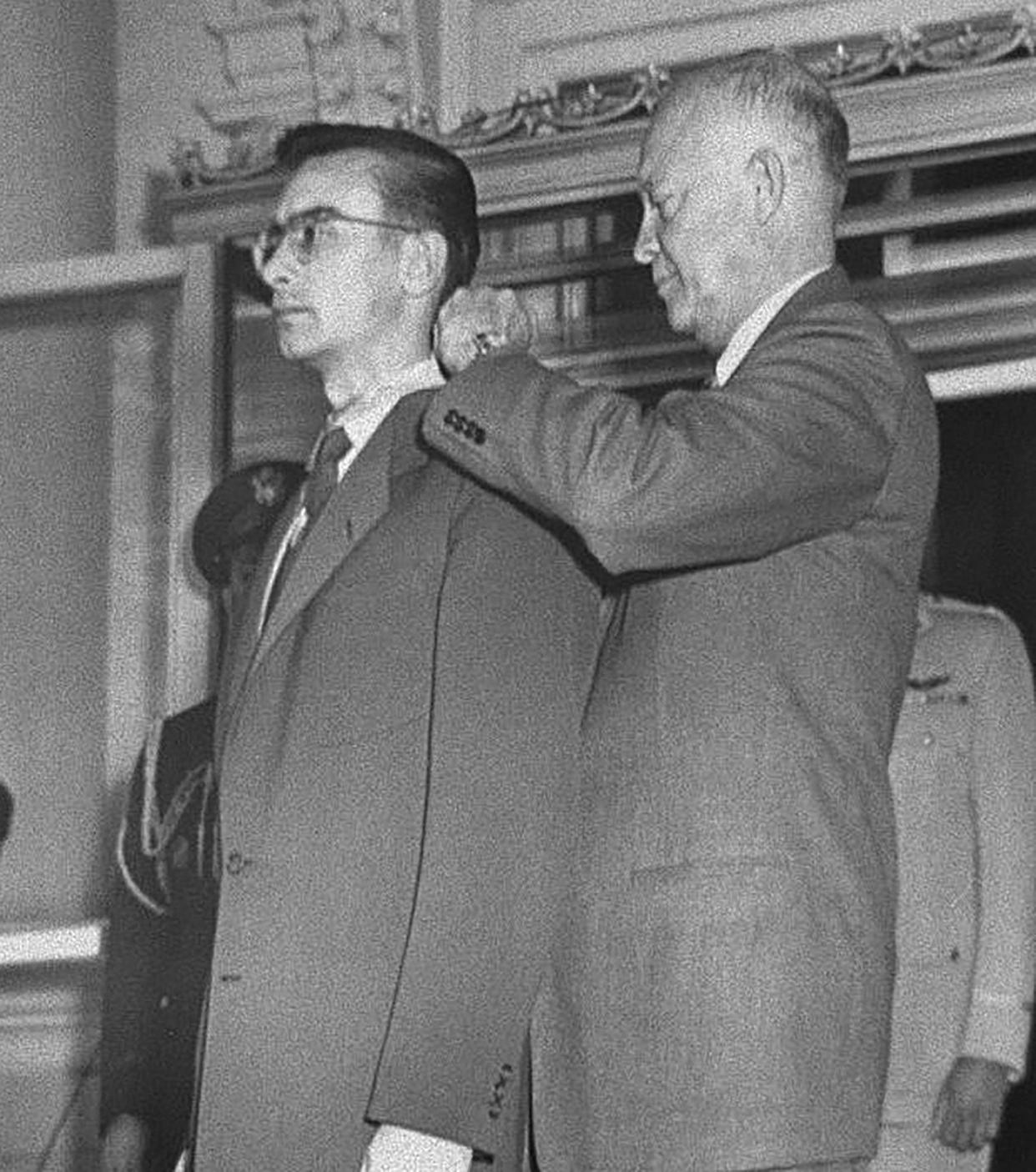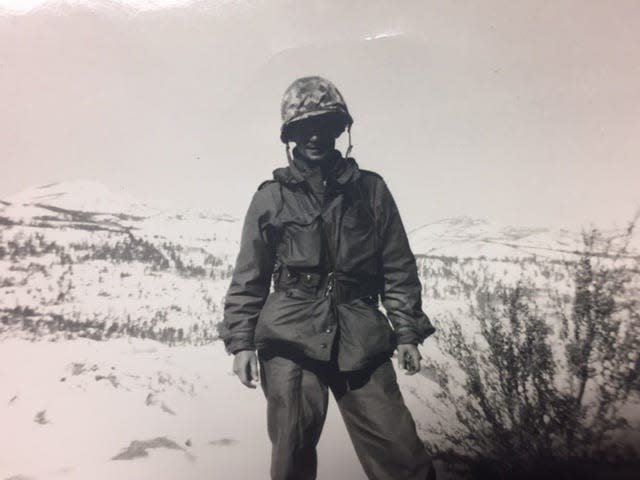Novi Medal of Honor recipient who threw himself on a grenade dies, still insisting he wasn't special

Seventy years ago, Robert Simanek threw himself on a grenade. It was a reflex, he would say later, a split-second response, and it earned him the Congressional Medal of Honor.
The blast shaped the rest of his life. As for the medal, it hung in a frame on the wall of his den — available if someone asked to see it, but nothing he would bring up or show off or claim made him anything special.
Simanek, 92, died Monday in an Oakland County hospital after a brief illness. He still bore scars from the explosion, he still carried a sense of obligation from it, and he still gave thanks for the directions it guided him.
"The turns in the road. The roads not taken," said his only child, Ann Clark, of Traverse City. He had good breaks, he had heartbreaks, and at the end, he was content.
In life, Simanek's act of selfless bravery on a Korean hilltop earned him handshakes from nine presidents. Rooms full of other heroes cheered him, and strangers sent him letters asking for his signature.
In death, Clark said, the U.S. Marine Corps offered marching musicians and a flyover of screaming jets. No, thank you, she said; there will be an honor guard and a rifle salute at his small, private funeral this week, but her father never sought attention before, and he wouldn't care for it now.
A stillness, then solitude
I'd spent a day with him 13 months ago in his apartment at Fox Run, the senior living community in Novi where he and his wife had touched down after she announced she was done with cooking.
Robert and Nancy, the quiet accountant and the chatty schoolteacher, had spent 51 years together in Farmington Hills and 64 years all told before a stroke took her in July 2020.
They were sipping drinks on the balcony where he grew flowers in as many pots as the space would hold. She came inside and sat down in her favorite recliner, and a few minutes later he noticed the silence. Three days beyond that, he was a widower.
He missed her every day, he said, and he could have dissolved, but Marines carry on. His Polo-style shirt was ironed, his slacks were creased and his shoes were shined.
"I've been so damned lucky," Simanek said. "I think about my whole life, how it turned out."
Simanek was the third of four sons of a kindly homemaker and an auto factory foreman he remembered as "a mean bastard."
A few years out of Mackenzie High School in Detroit, after brief stints in Ford and GM plants, he enlisted. As of Aug. 17, 1952, he'd been in Korea for three months.

Pfc. Simanek was 5-foot-7, bespectacled, and weary. After a 12-hour patrol, he was just settling in to a pre-dawn sleep when a sergeant rousted him and sent him off to an area north of Seoul called Outpost Irene.
He tucked a Reader's Digest and a can of beer in his pocket as he left. At least, he thought, it would be an easy hike.
The Chinese had other ideas.
Smoke, noise, bullets, explosions ... an ambush sent Simanek and five others diving into a trench. A hand grenade bounced in and he kicked it away. Another followed, and he had no time and no options. Already in a crouch, he half rolled and half pounced, and had just enough time to think, "I'm going to lose my right leg."
His hip and legs absorbed the detonation and the fragments, sparing his companions. He remained in the fight for hours, firing his rifle, and then finally crawled and tumbled down the hill to safety.
His immediate reward was seven months in a hospital. After that came his first meeting with a president — a ceremony at the White House in October 1953, with Dwight Eisenhower placing a pale blue ribbon with a five-point bronze star around Simanek's neck.
Savoring simple pleasures
A difference of a few seconds or a few inches might have made Simanek's Medal of Honor and his two Purple Hearts posthumous.
Instead, he enrolled at Michigan State as a 24-year-old freshman, met Nancy when she pinch-hit for a blind date, and never stopped wondering why someone so smart and wonderful could settle for him.
“He was gentle,” said Clark, a flutist and conductor who owns a title company in Beulah. Her mom always liked that. At the same time, Clark said, he was impatient: “He hated waiting in line for anything.”

He loved gardening, wildlife, travel and Clark’s two dogs. He’d autograph photos of the Medal of Honor or himself or even the sheet music to “The Marine’s Hymn,” knowing the objects might land on eBay; eventually, he pointed out, they would wind up in the hands of someone who valued them.
At 5 p.m. each evening, he would treat himself to a few fingers of Jack Daniel's on the rocks. Of the 146 Medal of Honor recipients from the Korean War, he was one of only three still around to toast the others; now there are two.
He leaves behind Clark and her longtime partner, jazz trumpeter Bill Fromm, who will play taps at the ceremony where Simanek's ashes will be interred alongside Nancy's. He is also survived by his younger brother, two sisters-in-law, and a ship.
He learned last year that the U.S. Navy was putting his name on a craft known as an expeditionary sea base, scheduled for completion in San Diego in 2024. A keel laying ceremony is scheduled to take place this summer, and Clark said he strengthened a bit at the thought of attending, but the rally didn't last.
Instead, there will be a public memorial from 11:30 a.m.-1:30 p.m. Aug. 15 at Fox Run.
Next comes the task of cleaning out his apartment. Much of her dad's memorabilia, Clark said, will be donated to the Michigan Heroes Museum in Frankenmuth.
The Medal of Honor, however, she will keep. It will hang in her den — available if someone asks to see it, and a reminder that her father was more special than he ever claimed to be.
Reach Neal Rubin at NARubin@freepress.com, or via Twitter at @nealrubin_fp.
To subscribe to the Detroit Free Press, click here.
This article originally appeared on Detroit Free Press: Grateful Novi Medal of Honor holder who smothered a grenade dies at 92

